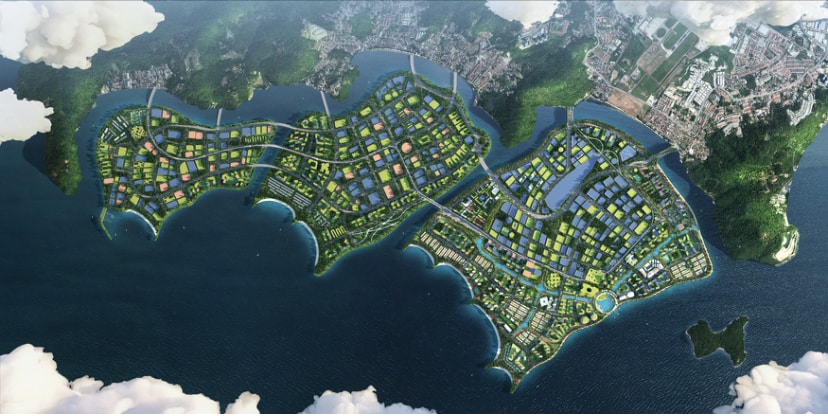THE Island A of Penang South Islands (PSI) is now called Silicon Island.
It is one of the three islands under the PSI project which will be located at the south end of Penang island, measuring a total of 4,500 acres in land size. Island A will be 2,300 acres in size, Island B 1,400 acres and Island C 800 acres.
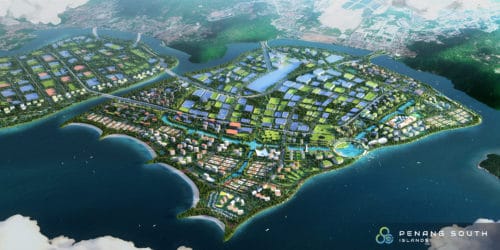
The PSI project has recently received the Environmental Impact Assessment (EIA) approval from the Department of Environment (DoE) with 71 conditions.
Chief Minister Chow Kon Yeow said the name was in line with the topside development plan for the proposed island, which includes the high-tech industrial park called ‘Green Tech Park’ (GTP) as well as digital technology infrastructure, e-Commerce, and Business Process Outsourcing (BPO) facilities.
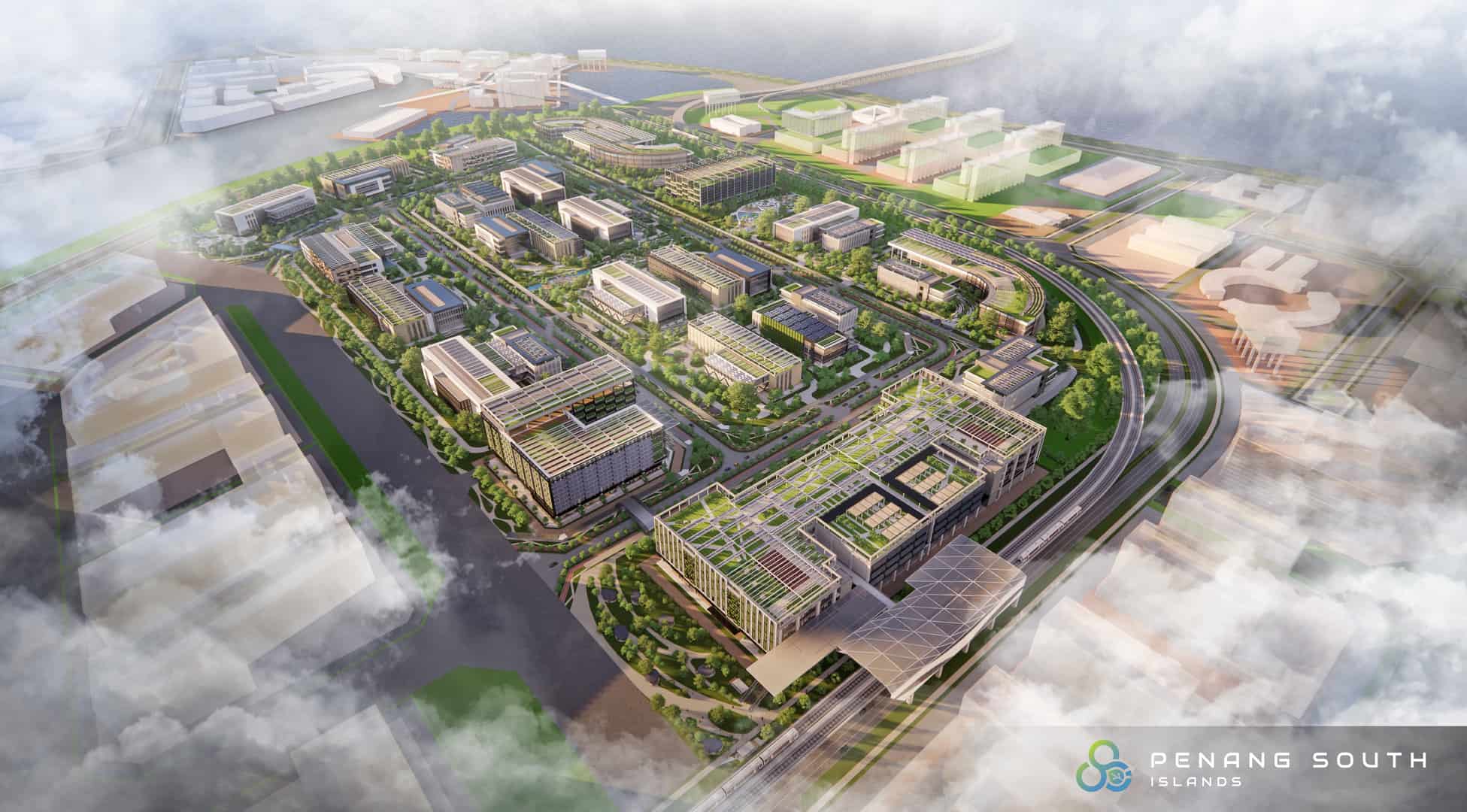
“The location of the GTP and BPO is strategic because it is close to the Bayan Lepas Free Industrial Zone (FIZ), Penang International Airport (PIA) and the Sultan Abdul Halim Muadzam Shah Bridge.
“Besides that, the ‘Heart of the Island’ (HOTI) commercial centre will also be set up in a beautiful waterfront area and connected by a network of special waterways. HOTI will be one of the state’s tourist attractions,” he told a media conference at Komtar today. He added that the development of Silicon Island could drive the creation of over 460,000 jobs and generate a forecasted Gross Domestic Product (GDP) of RM2.2 trillion in a 30-year time frame.
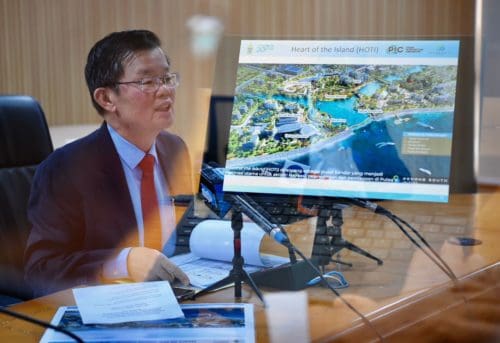
Chow said Silicon Island’s master plan has successfully obtained a ‘5 Diamonds’ recognition for the Design Category from the Malaysian Green Technology and Climate Change Corporation (MGTC) in the Low Carbon Cities 2030 Challenge.
“Various green initiatives will be developed on Silicon Island to reduce carbon production by up to 45%.
“Among them are to allocate 405 acres of land for the development of public parks, wetlands, floodplains, and bioswales; to plant and grow mangrove forest which has the potential to become a popular recreational area for locals and tourists; to construct water canals and create a blue-green network that enables the implementation of water taxi transport; a 100% usage of renewable energy at GTP; to implement green mobility by creating 110km of bicycle and pedestrian network; to encourage the use of public transport powered by electricity through the implementation of light rail transit (LRT) and electric bus services; and to construct ‘super low-energy’ buildings equipped with efficient cooling systems and smart features.
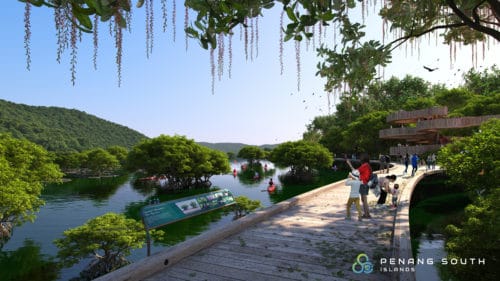
“Others include implementing sustainable urban planning with climate-responsive design and green characteristics; implementing a dual-function sewage treatment plant, rainwater harvesting, and instal water-saving devices; and implementing recycling programmes, food composting and decomposing processes to reduce wastes in landfills,” he said.
Penang Infrastructure Corporation (PIC) chief executive officer Datuk Seri Farizan Darus said the PSI project is the future development of Penang which would drive the state to remain progressive, attractive to highly skilled talents, competitive, and sustainable.
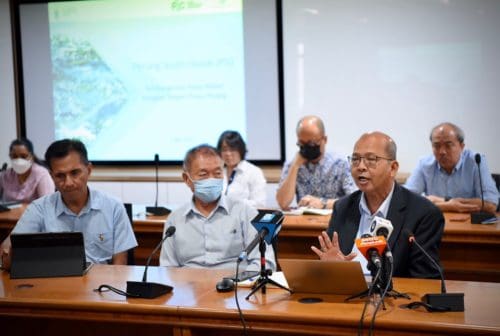
Farizan also presented some details about Silicon Island during the media conference.
The proposed development of Silicon Island includes land use for industry and Global Business Services (GBS) Belt (700 acres); public spaces, infrastructure and blue-green network (1,042 acres); and housing and commercial (558 acres).
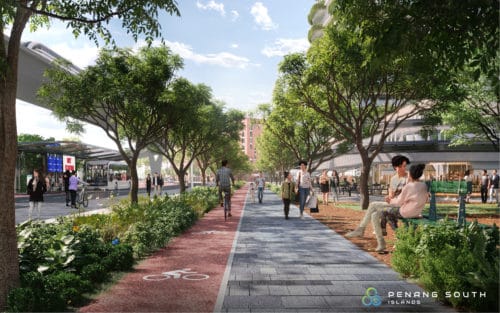
“The targeted sectors for the 700-acre land Green Tech Park allocated for industry and GBS Belt include semiconductor IC Design; software development; embedded systems design; product design and development; high-tech manufacturing: semiconductor and systems product; assembly, testing and packaging; automated test equipment and equipment fabrication; medical devices; and GBS,” Farizan said.
He also spoke about the 405 acres of land for the development of public parks, wetlands, floodplains, and bioswales. They include 110km of bicycle and pedestrian network, 580 acres of land for roads, LRT and Bus Rapid Transit (BRT) corridors, utility reserves, landscape, bus depot and LRT; and 57 acres of land for public facilities such as schools, fire stations and houses of worship.
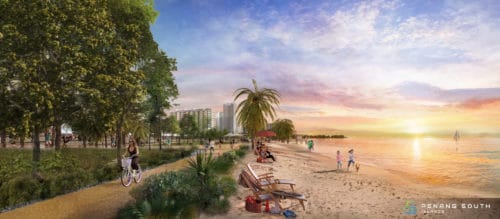
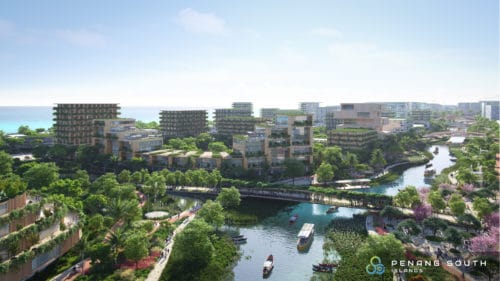
“As for commercial and housing, some 558 acres have been allocated for that purpose on Silicon Island. The housing includes affordable homes, stratified housing, and landed properties,” Farizan said.
He added that the coastal buffer zone on the perimeter of Silicon Island is flexibly designed to enable long-term coastal adaptation to face excessive sea level rise.
“Contingency measures include a ‘polder’ system (banks of reclaimed land will be raised and increase water storage capacity); weirs; flood gates to prevent the entry of seawater; and pump system to drain excessive stormwater,” he added.
Check out the video link of the PSI topside development plan by Penang Infrastructure Corporation: https://www.youtube.com/watch?v=f6i7AAN74yk
Story by Christopher Tan
Pix by Muhamad Amir Irsyad Omar
Video by Alissala Thian

